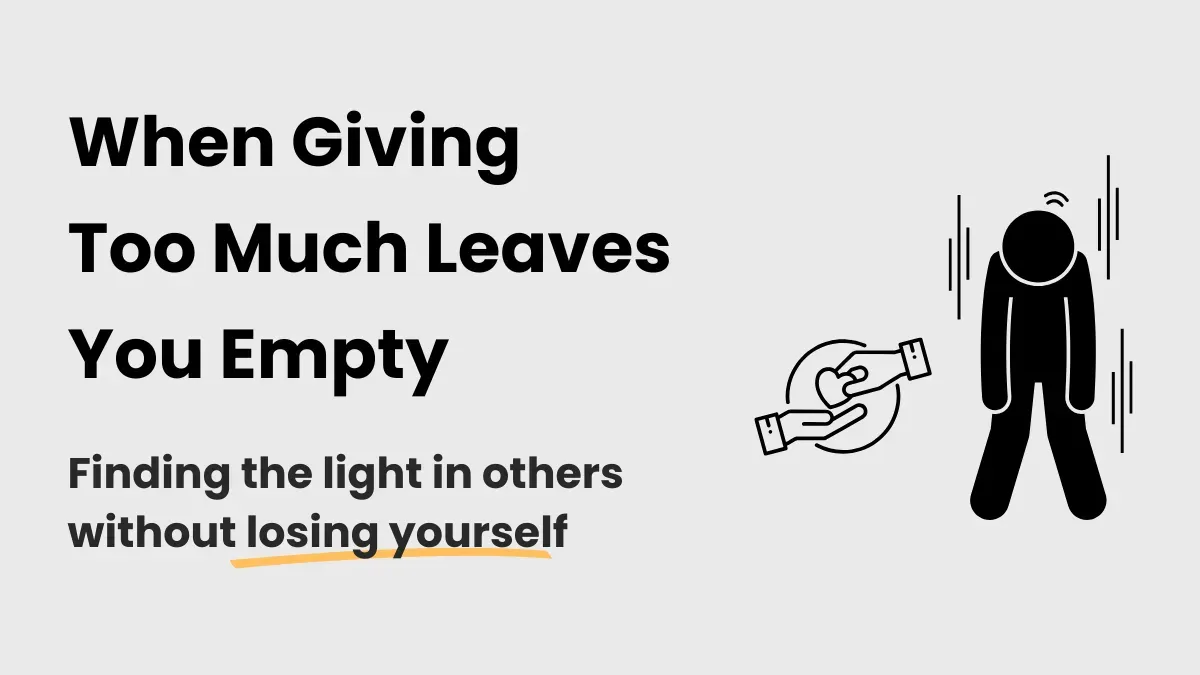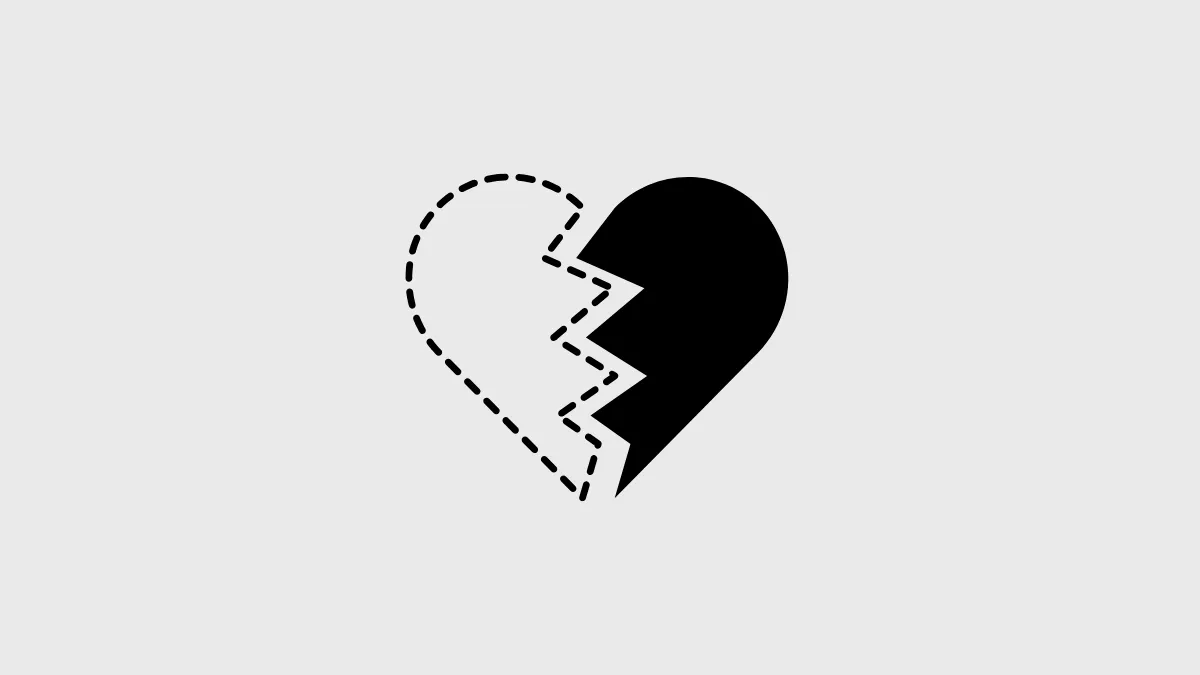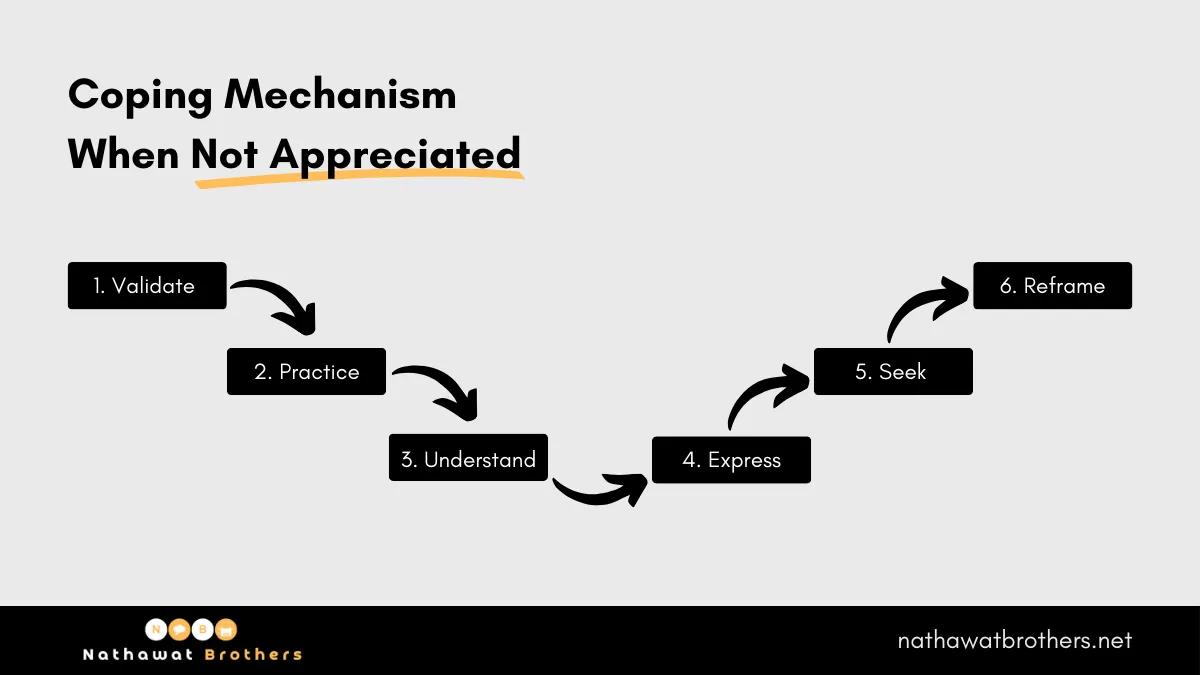Many of us have found ourselves in a place where we do everything we can for someone close to us, only to feel like our efforts go unnoticed.
We show up, we listen, we give our time, energy, and care, because it feels right.
We want to help, to support, to be the kind of person others can rely on.
We tell ourselves we do not need anything in return, that love and kindness are enough on their own.
And for a while, they are.
But deep down, there’s often a quiet hope, just a simple wish to be seen, to be appreciated, to hear a heartfelt “thank you.”
When that acknowledgment never comes, it hurts.
Not loudly, not dramatically, but in a way that makes us question our value. This quiet pain can settle in and make us feel like we are just not enough.

Table of Contents
Why giving often feels one-sided
Giving, when done from a place of love, feels natural.
But when the response is silence, indifference, or entitlement, we begin to question our worth.
Research in social psychology suggests that humans have a basic psychological need for relatedness and recognition. According to Dr. John Gottman, emotional attunement is a key ingredient in lasting relationships.

When people fail to respond to our emotional bids for connection, it creates a sense of disconnection and invisibility.
Often, the people we help do not intend to ignore us. Some may be emotionally unavailable. Others may struggle with self-worth and cannot accept help without feeling guilty or defensive.
There are also individuals who have simply become accustomed to being supported, so they stop seeing it as something special.
How to cope when you feel like you’re not enough
Here are some ways to tolerate and manage the pain of feeling unappreciated while still seeing the good in others:

1. Validate your own efforts
You do not need someone else to define your value.
Keep a journal of what you do for others and how it aligns with your values. Reminding yourself of your intentions can help reduce feelings of inadequacy.
2. Practice selective giving
It is okay to pull back.
Giving should be a choice, not a compulsion. Focus your energy on those who also show care and respect.
Emotional boundaries protect your mental well-being.
3. Understand the other person’s limitations
Sometimes people do not have the emotional tools to respond the way we want. This does not mean they do not care.
Seeing the good in others includes accepting their flaws and limitations.
4. Talk about it gently
If it is safe and appropriate, open a conversation. Say something like:
“Sometimes I feel like my efforts go unnoticed, and I know you may not realize that. I need help from you in understanding how we can better support each other.”
5. Cultivate other sources of support
No one person can meet all of our emotional needs.
Seek connections where your contributions are noticed and reciprocated. This includes friendships, support groups, or even professional help.
6. Reframe the narrative
Instead of thinking, “I am not enough,” try telling yourself, “I give because it reflects who I am, not because it guarantees validation.”
This shift can be empowering.
Conclusion
Being not enough is often not a reflection of who we are but of what others are able or willing to see. It takes strength to continue to see good in others even when we feel overlooked.
But it is just as important to see the good in yourself. If you feel like you need help from someone, do not be afraid to ask.
Caring for others is noble, but caring for yourself is necessary.
Thank you for taking the time to read this post. If it resonated with you, consider subscribing to our free newsletter, where we share more reflections, insights, and tools for navigating the emotional ups and downs of life.
Your support means a lot, and we’re grateful to have you here.
Find us on: